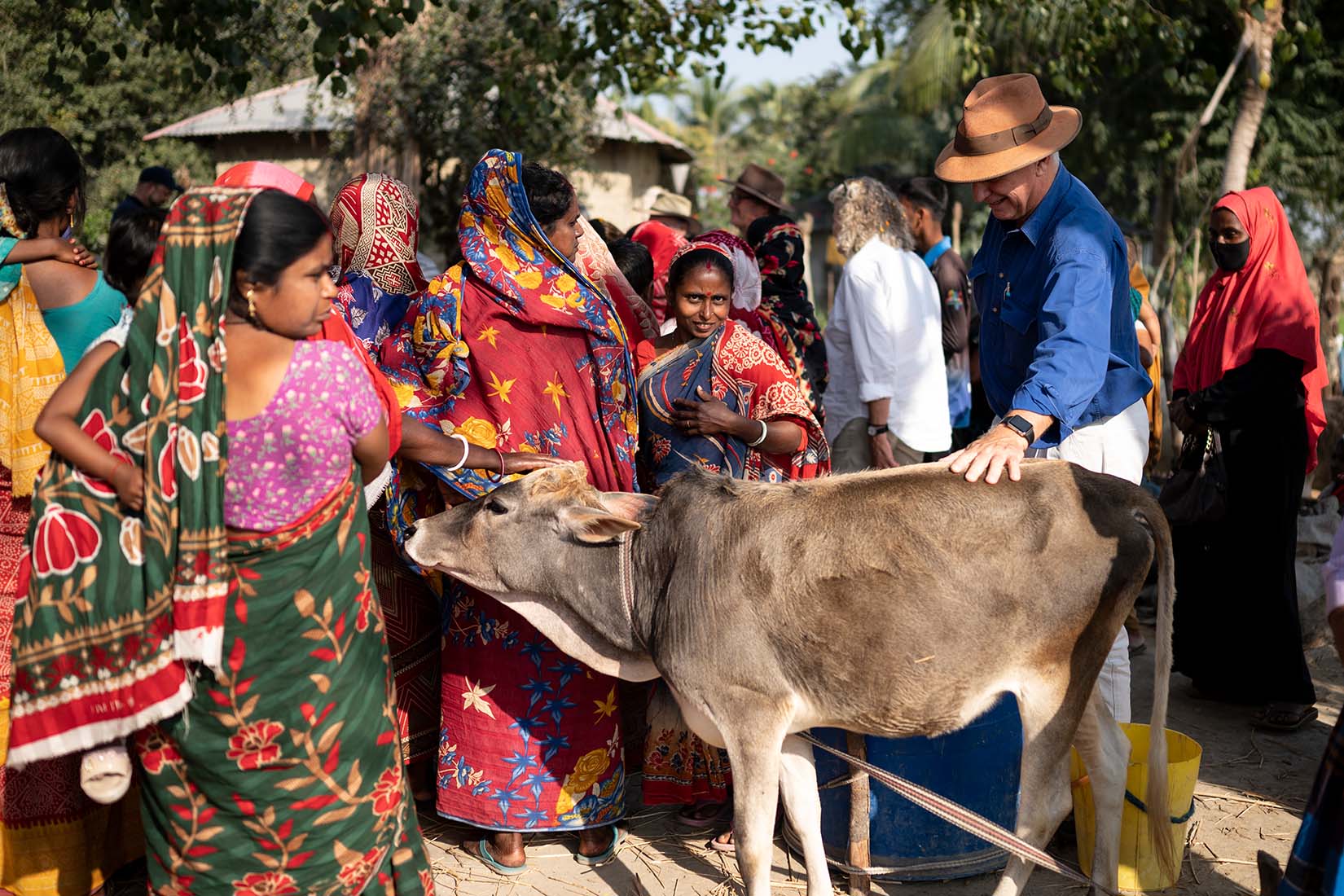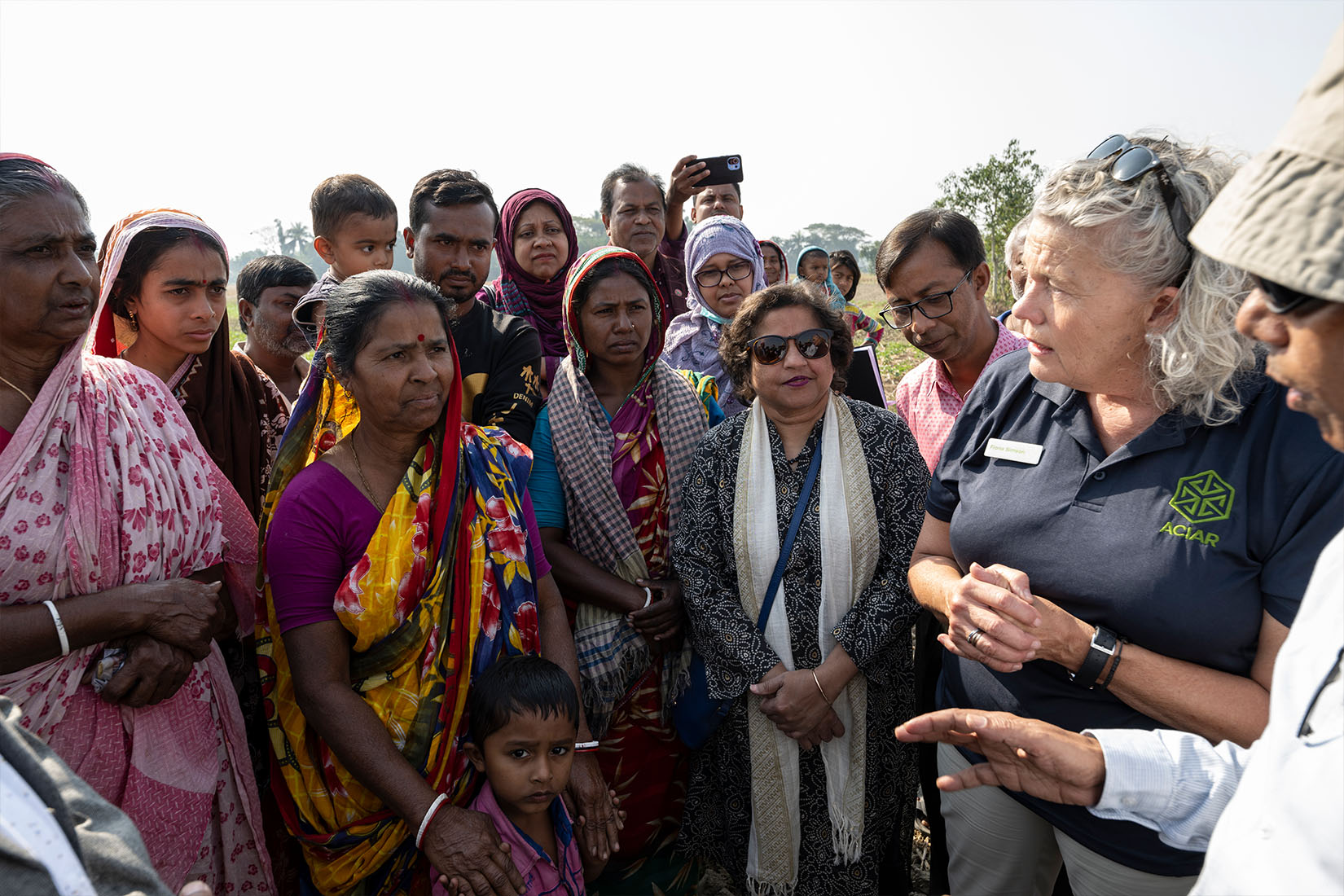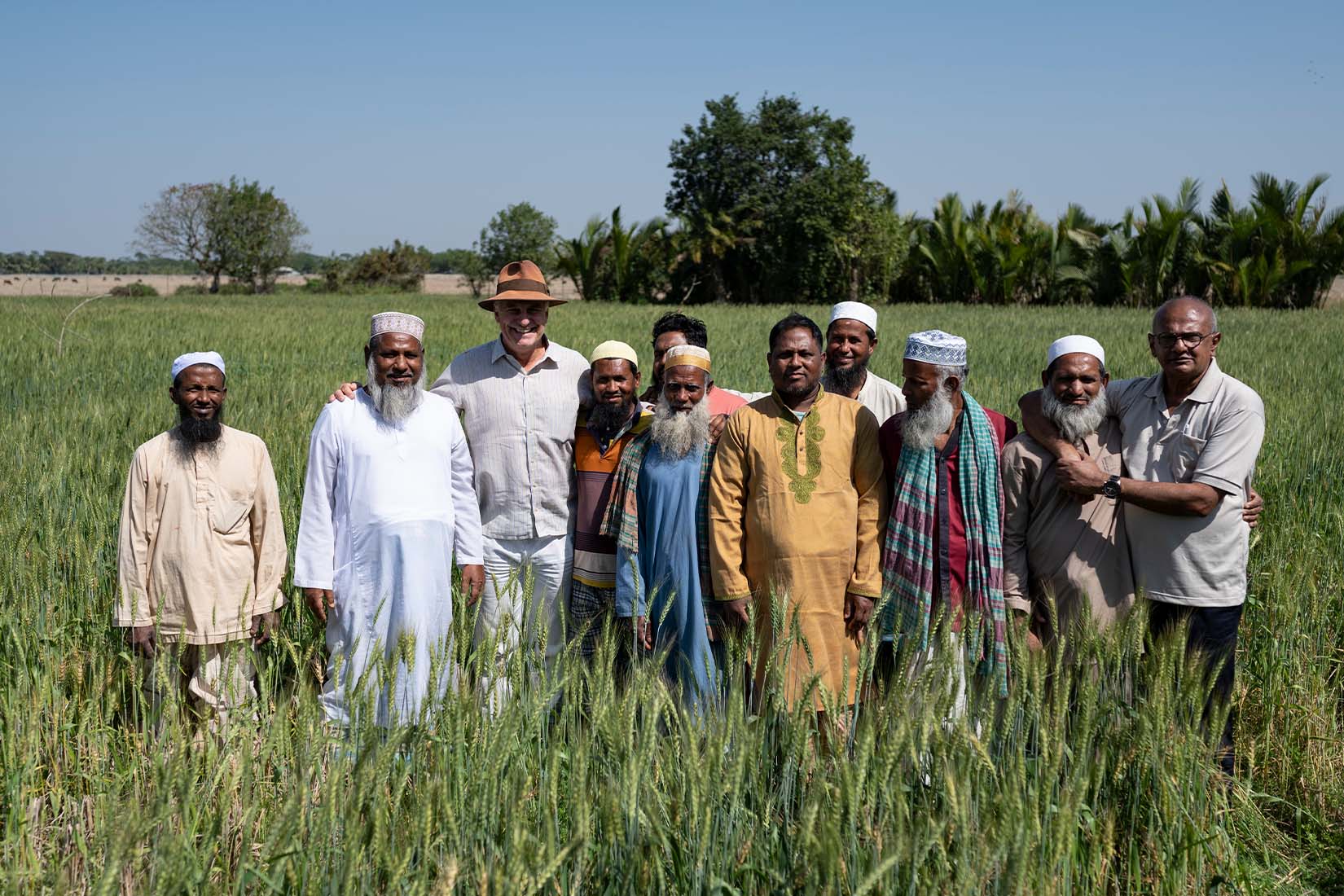Australia's Commission for International Agricultural Research (Commission) visited Bangladesh from 11-17 February to learn about the country's agricultural development priorities and to gain an understanding of the impact and effectiveness of 25 years of ACIAR collaboration with Bangladesh.
The Commission comprises 7 leading experts from Australia who provide advice on international agricultural research and development issues to Australia's Minister for Foreign Affairs.
Australia and Bangladesh share some common challenges. A major focus of the Commission's visit was to review research partnerships, especially in cropping systems under adverse conditions, including salinity and nutrient management.
The Australian High Commissioner to Bangladesh, HE Jeremy Bruer, hosted a reception for the Commission on Saturday, 11 February, following a high-level stakeholder roundtable. The roundtable was attended by eminent experts in agriculture research, with closing remarks delivered by special guest Dr Wahida Akter, Secretary, Bangladesh Ministry of Agriculture.
'I am delighted to hear about your experiences and commitment to enhancing the agricultural ties between Australia and Bangladesh. The ACIAR-Bangladesh 10-year strategy covers many critical aspects of Bangladesh agriculture and has much scope for collaboration in many areas, said Dr Akter.
'Bangladesh and Australia have close ties. There is a lot to learn from each other, and ACIAR has been a fundamental support partner for agriculture research in Bangladesh,' added Dr Akter, thanking the Commissioners.

Commissioner and ACIAR CEO Professor Andrew Campbell said that when researchers work with farmers, research is more relevant and more likely to be adopted at scale.
'ACIAR brokers and invests in research partnerships in developing countries in the Indo-Pacific region to build knowledge to support crucial development objectives. Our work helps tackle global challenges like poverty and climate change,' said Professor Campbell.
During the week, the delegation met with ACIAR alumni and visited multiple ACIAR-supported projects that are helping smallholder farmers become more resilient to climate change in the regional provinces of Barisal and Khulna, covering Patuakhali, Kolapara, Amtoli, Batiaghata, Dacope, Dumuria and Jashore.

Commenting on the strong work being done by Australian and Bangladeshi researchers, Commission Chair, Mrs Fiona Simson, said that the Commission had been hearing about the impressive ACIAR projects in Bangladesh. Now seeing them has been a remarkable experience.
'I am a farmer myself and have experienced some of the challenges faced by the farmers in Bangladesh. The collaborations between Australian and Bangladeshi researchers are crucial to solving these challenges, and I am glad that the farmers have been receptive to adopting new technologies,' said Ms Simson.
While in the field, the delegation experienced the traditions and culture of Bangladesh. They met with farmers benefitting from ACIAR-funded projects helping rural communities tackle the issues related to climate change and move towards attaining food security and increasing household incomes.

The Commission visits one ACIAR partner country each year to understand developing countries' agricultural challenges first-hand, and to inform its advice to Australia's Minister for Foreign Affairs.
Before Bangladesh, the Commission visited Vietnam in 2022, Indonesia in 2020, Laos in 2019, Fiji/Vanuatu in 2018, Myanmar in 2017, and Pakistan in 2016.
Watch the video below to learn more about the Commission visit to Bangladesh.






